A herd of 20 Tauros has just been released in the Velebit Mountains rewilding area in Croatia. Complementing the 20 Tauros already released in August, the animals will help to restore a more natural landscape which better supports wild nature and nature-based tourism.
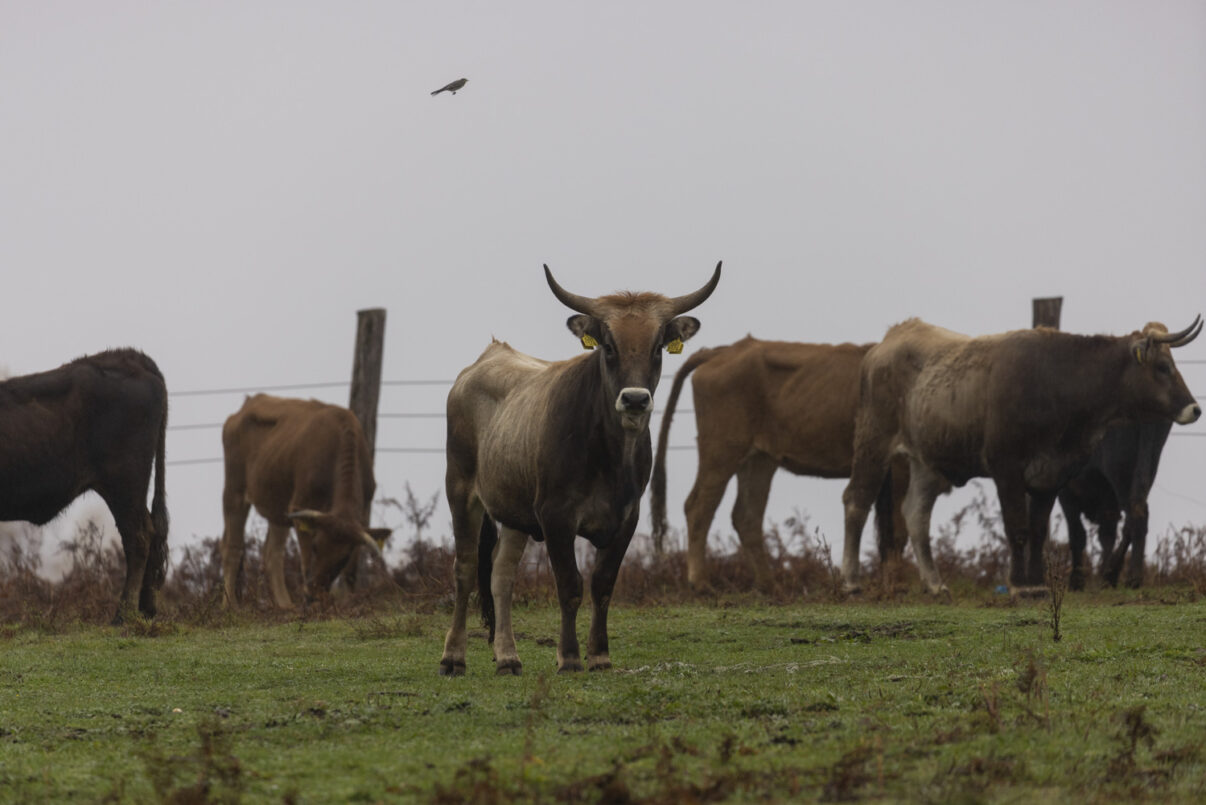
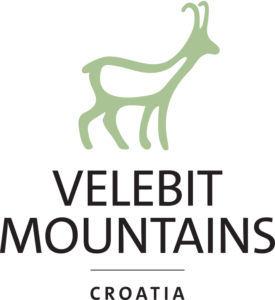 A rewilding vision
A rewilding vision
Imagine a sprawling, high altitude grassland, ringed by the craggy limestone peaks of the Velebit Mountains. Roaming herds of Tauros and Konik horses graze this verdant plain, creating mosaic (half-open, half-wooded) habitats that are home to a thriving wild nature.
Although these herbivores are capable of defending themselves from wolves and bears, some inevitably become a source of food for these iconic carnivores, while the carcasses left behind sustain vultures and other scavenging species. This captivating wildlife spectacle draws nature lovers from far and wide, who stay in the area’s network of lodges and boost local incomes and livelihoods.
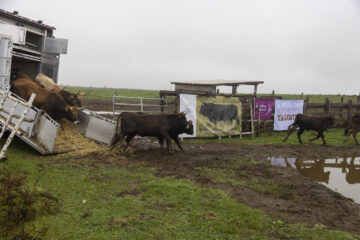
This rewilding vision for the Lika Plains, a scenic area of grassland that forms part of the Velebit Mountains rewilding area in Croatia, is now a step closer to reality with the arrival of 20 Tauros (10 males and 10 females).
The bovines, which were transported from the Netherlands by Stichting Taurus (the Taurus Foundation), complement 20 Tauros that were translocated from the Netherlands in August, plus an additional 140 Tauros that have either been released or born in the area in previous years.
Positive adaptation
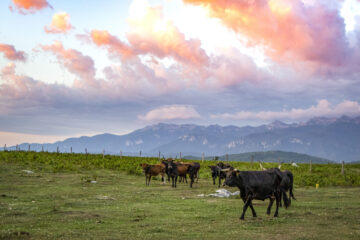
The 40 Tauros translocated to the Lika Plains this year were transported in two separate shipments (rather than one) for a number of reasons, including the practicalities and logistics of selecting individuals in the Netherlands, and the capacity of the acclimatisation enclosure in the rewilding area.
The 20 Tauros that arrived in August have already been released from the enclosure and are adapting well to their new environment as they mingle with the herds already grazing the plains.
“There may be more Tauros releases in the future,” explains Rewilding Velebit team leader Marija Krnjajić. “The aim is to establish a self-sustaining population of the animals, which is expected to happen around 2028. This population will play a key role in a wilder, more functionally complex Lika Plains environment governed by natural processes.”
Future focus
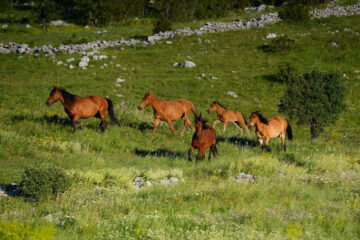
In addition to the Tauros, Rewilding Velebit and partners have also released over 87 wild horses (Koniks and Bosnian Mountain Horses) onto the Lika Plains in recent years (with herds now totalling nearly 100 animals), co-funded by Arcadia, a charitable fund founded by Peter Baldwin and Lisbet Rausing.
The area is already showcasing the benefits of allowing natural processes to create wild, naturally grazed landscapes, with the first signs of dynamic mosaic habitats now visible.
Going forwards, Rewilding Europe will continue to work with local landowners and farmers to expand the amount of land dedicated to natural grazing from 800 to 1500 hectares, while herbivore populations are also kept in check by predation.
As the Lika Plains become wilder and the area becomes increasingly well-known for its wildlife watching opportunities, it is expected that more and more nature lovers will be drawn to the area. The Rewilding Velebit team are in the early days of developing nature-based tourism in the area and there are plans to establish a visitor and education centre.
Part of the programme
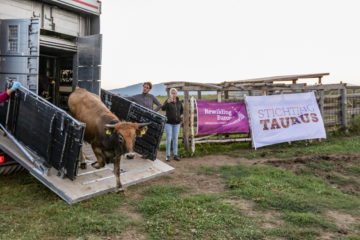
Tauros are bovines that have been specifically back-bred to fulfil the ecological role of aurochs, an ancient wild bovine species that is now extinct. This latest release on the Lika Plains represents a continuation of the Tauros Programme, which began in 2009 and then progressed as a cooperation between Rewilding Europe and the Taurus Foundation, starting in 2013. The overall aim of the programme is to bring back a fully self-sufficient, wild-living bovine species that is as functionally similar and genetically as close as possible to the original auroch.
These animals can then play a vital natural grazing role in a range of European landscapes that are undergoing rewilding. Rewilding Europe currently supports natural grazing involving Tauros and other herbivores such as wild horses and European bison in 24 different pilot areas across nine countries, of which the Lika Plains, Status Wild Area (part of the Rhodope Mountains rewilding area in Bulgaria) and Ermakov Island (part of the Danube Delta rewilding area in Ukraine) are some of the largest examples.
The Lika Plains are also one of the pilot areas of the European Commission-funded, three-year GrazeLIFE initiative. Evaluating the benefits of various land management models involving domesticated and wild/semi-wild herbivores, this also includes three other rewilding areas (the Oder Delta, Danube Delta and Greater Côa Valley).
